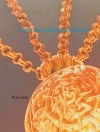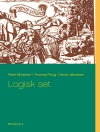In ‘Facts and Speculations on the Origin and History of Playing Cards’ by William Andrew Chatto, the author meticulously delves into the intricate history and evolution of playing cards. Chatto’s scholarly approach explores the cultural significance of playing cards across different time periods, shedding light on their origins and symbolism. With a keen eye for detail, he navigates through various theories and speculations surrounding the emergence of playing cards, providing a comprehensive analysis of their development through the centuries. This book is a valuable resource for anyone interested in the historical and artistic aspects of playing cards, written in a clear and engaging literary style. William Andrew Chatto, known for his expertise in the realm of antiquarian studies, brings a wealth of knowledge to his exploration of playing cards in this book. His background in history and cultural studies informs his meticulous research, making him a trusted authority on the subject. Chatto’s passion for uncovering the origins of playing cards is evident throughout the book, as he presents his findings with both precision and enthusiasm. For readers intrigued by the captivating history of playing cards and their cultural significance, ‘Facts and Speculations on the Origin and History of Playing Cards’ is a must-read. Chatto’s thorough examination of this timeless pastime offers a fascinating glimpse into the rich tapestry of human creativity and ingenuity, making it a rewarding and enlightening literary journey.
Giới thiệu về tác giả
William Andrew Chatto (1799-1864), an English author, antiquary, and wood engraver, was renowned for his scholarly contributions to the understanding of playing cards’ history and etymology. His most significant work, ‘Facts and Speculations on the Origin and History of Playing Cards’ (1848), presents an extensive survey of the literature on the subject, tracing the emergence and evolution of card games across cultures and time. Chatto’s meticulous research and engaging narrative have rendered this book a foundational reference for subsequent card historians and enthusiasts. Erudite yet accessible, Chatto’s work exemplifies a literary style that melds historical investigation with a passion for the topic at hand. His attention to detail and the breadth of his exploration into playing cards’ past, from their presumed Eastern origins to their adoption in Europe, underscore his commitment to scholarly rigor. Moreover, Chatto’s examination of the card-making process and the socio-cultural implications of card playing in various societies reveal his multidisciplinary approach. While ‘Facts and Speculations’ remains his most recognized contribution to the literary world, Chatto’s oeuvre extends beyond this single volume, reflecting his varied interests and expertise in cultural artifacts and their histories.












